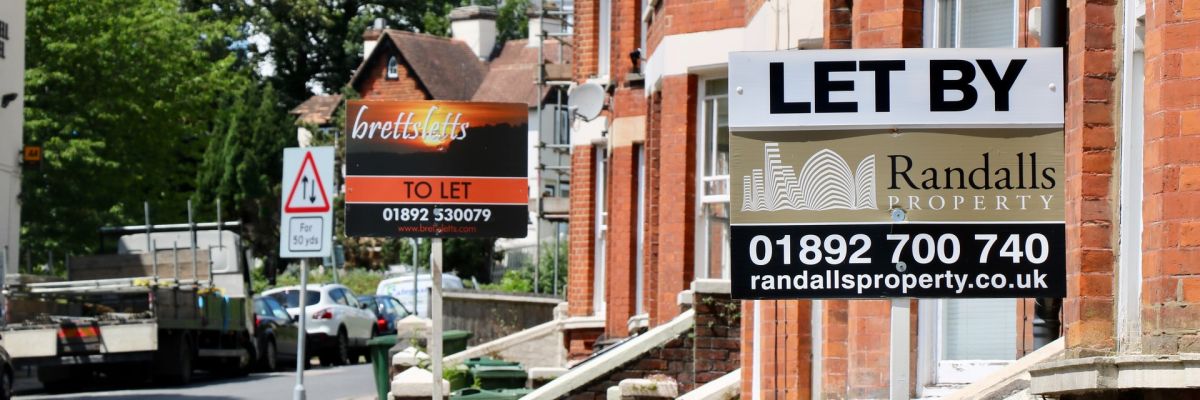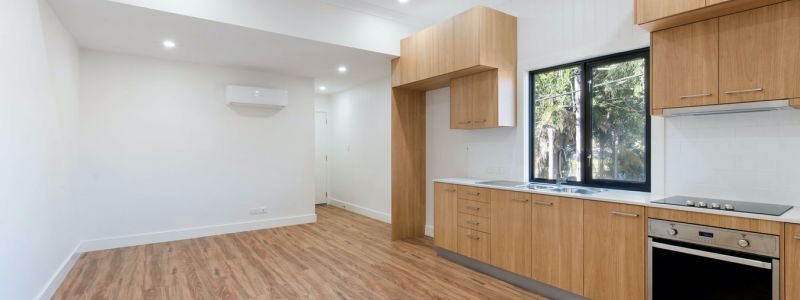BTL - A Landlords Perspective

Have you ever thought about getting into the Buy to Let (BTL) market? Perhaps you are fortunate to have a second property and want to rent it or have decided property rental is a way to make a bit of extra income. I have received many questions about renting from future landlords asking lots of questions so thought a basic beginners guide would be helpful.
The most asked questions are around the following areas:
- Getting a BTL mortgage
- Arrears, property damage and bad tenants
- Taxes
- Costs
is it worth it?
So that is where I will focus. There is so much to being a landlord, I am one myself and whether it’s a tenant not paying or just simply testing your patience on something through to ensuring you pay the right tax or having enough money to cover repairs, it can be more trouble than the returns you receive but I will cover all of that in this guide.

Property & location
One of the biggest challenges when starting out as a landlord is to find the right property, especially when it’s your first. There is a tendency to believe that the best option is to find something, perhaps anything that is cheap.
That can often lead to difficulties. Buying property in an area you don’t know that well or it is too far away to get to quickly if needed.
Location, location, location
Try to find a property close to your location. It is preferable that if needed you can get there in a reasonable timeframe where possible. If that is not possible, perhaps as you already own the property in a different area then ensure you have an agent or someone that is on hand.
Why is this important? Don’t believe that every tenant, when they have a leak, will rush to find the stop cock and turn off the water. Some prefer to take the view it’s not their property, not their problem. So proximity can help with damage prevention.
Where possible buy property in an area you are familiar with, too often I have seen people buy property in an unfamiliar area and not realise until it is too late that it was the wrong purchase. At the very least research well, for example;
- How are the transport links
- Is it close to shops, schools or other useful amenities?
- Check the surrounding streets, well cared for? Gardens tidy, communal areas clean and so on.
Don’t get attached to the decision, you are not buying a home for yourself, but do think about what may be important to potential tenants, what do you see as the positive and the negatives?
Remember a tenant may have children, so not being close to a school will reduce the number of interested tenants, poor transport links will reduce them further if they can’t get to a place of work.
Your choice should appeal to the widest range of potential tenants.
Property Condition
Tenants tend to be split between;
- caring for the property like it’s their own
- taking reasonable care
- not being interested
- Even if you take their deposit to clean up and repair after they are gone it is still a Landlord's nightmare
But they all know of course that they are renting. So as long as it is clean and tidy that is all they are generally looking for.
Much in the same way I say don’t get attached to the property as it is not your own home, the same will apply to the tenant.
The best approach is to find something that is simple and cost-effective to maintain.
Don’t go with expensive furniture and fittings unless, of course, you are renting at the higher end of the market where tenant expectations are also higher. I tend to go with plain, painted walls, basic carpets throughout as well as basic electrical items.
It is not about being cheap, it is about being realistic.
Once a tenant moves out a new tenant won’t be as quick to find if the walls are a mess with marks and stains or a carpet has nasty stains on it. So you want to ensure that the time between one tenant moving out and another moving in is quick and efficient.
At worst you want to be in and out in a day or two having repainted and replaced a carpet where required and without it costing a fortune.

Mortgage Options
There are plenty of mortgages available from a range of lenders whether on the high street or more specialist lenders that can support those with a less than perfect credit record.
There are a few elements you will need to consider though.
Loan To Value (LTV)
Unlike a mortgage you would get in the purchase of a new home for your own use, BTL mortgages will in the main have a larger deposit requirement.
Currently, it is very common that lenders will reach to 75% LTV, so you will need to have a 25% deposit. There are a couple that will stretch a bit further, as much as 85% but these are difficult to come by in the current market.
Interest Only
Lenders are far more open to providing an interest-only mortgage. This flexibility comes from the fact you are not mortgaging a home for your own use, losing it will not make you homeless.
Part of the gamble with BTL is that you are playing a long game of waiting for the value of the property to increase and sell in the future to make a profit.
Keeping down the monthly mortgage cost to provide as much profit that can be used for repairs and maintenance with anything left coming to you is a preferred option.
That is not to say should avoid a repayment mortgage, there is a clear benefit in reducing what you owe.
Only you can make that decision.
Affording the mortgage
Each lender is different although most take largely the same approach when it comes to demonstrating affordability for the mortgage.
Income
Where you have no tenant in the property being purchased the lender will ask the valuer to give an opinion on the market value for rental purposes. Most will accept that as income to meet affordability even before a tenant is in place.
Depending on the lender policy they may stress the mortgage payments in the same way as regular mortgage lending, have a look at that here. If they do that then it could be that the rental income alone will not be enough.
Where the rental income is not enough they can take your own income into account to bridge the gap. In that case, you will need to go through an assessment of your own income and expenditure to ensure there is sufficient residual income available.
Lenders must stress mortgage payments as a regulatory requirement. The purpose is to ensure that where there is a sharp rise in interest rates, you can still meet the payments.
Just because your mortgage payments go up, it does not mean you can do the same to the rent in order to remain competitive.
Summary
Everyone is different but with a decent deposit and a good credit rating, there are plenty of mortgage options out there for you.
Just as you would with a standard mortgage for your home, seeking out the best deal possible is vital. You want to maximise your rental profit.

Landlord Obligations
You are responsible for ensuring a tenant has the right to reside in the UK, failure to do so can result in a fine of unlimited value and/or a prison sentence of up to 5 years.
Deposits
Right at the start of a tenancy, you will receive a deposit from the tenant. It is there for your protection to cover losses. All deposits by law must be lodged in an approved deposit protection scheme.
Meeting Safety Standards
There is a number of safety standards you must meet, these include.
- Gas safety certificates for every appliance.
- Smoke detector on every floor.
- Carbon Monoxide detector.
- Any furniture you provide must meet the fire safety standards.
- Electrical testing was carried out.
- Protecting the water supply from Legionella.
- Energy Performance Certificate (EPC), a minimum rating of E
And all of the above are not just one-off requirements, some will regular testing at intervals set out in regulatory requirements.
Repairs
Aside from it being important to keep the property in good order for you as the owner, you have a responsibility to the tenant.
If the boiler breaks down or there is a water leak it needs to be fixed. Sooner rather than later.
Very little if any repairs will be the responsibility of the tenant.
Leaving it to an agent
Being a landlord as you can see is a responsible role. You may want to leave it an agent. The immediate downside to this is the cost. They will charge a percentage of your rent to be your agent. Some may do it on a fixed monthly fee basis.
The good
Agents will do at least the following
- Find tenants, do viewings and deal with your current tenant.
- Collect the rent and chase any arrears taking action where needed.
- Arrange for all the safety needs.
- Arrange for repairs.
- Inspect the property.
- And all the paperwork associated with the above.
Generally, all you get is an invoice each month with the balance of the rent transferred after they take their fee.
The not so good
You assume your agent will do their best for you and the tenant. But sometimes they don’t and other times may in fact be making a bit more on the side than the agreed fee.
It is important to remember that;
Legally you are still the landlord, if something goes wrong the Law will hold you responsible, not the agent.
Kickbacks with agents and contractors are common. The firm they send out to fix a leak or repair the boiler is often on the agent’s books as they are giving the agent a % of the call-out fee. You can be sure that the contractor is increasing their invoice by that amount.
I am not saying you should not use an agent, just be aware that it is not always as simple or convenient as you may think.

Tax, there is always tax!
Paying tax on rental profits is one thing, calculating it is another. Not that it is hard once you get the hang of the paperwork and understand what you can and can’t claim. There is a lot to this but I am trying to condense it down into the common elements.
What you pay tax on
Simply put you pay tax on rental profit, that is the amount you receive after deducting any items you can claim and therefore do not pay any tax on. A very quick and dirty example. In this example, I am assuming there is a mortgage outstanding and the interest costs alone are £600 each month.
| Description | Amount (£) |
|---|---|
| Gross Rent | 15,000 |
| Management Fees | 2,000 |
| Repairs | 3,000 |
| Net Profit | 10,000 |
| Mortgage Interest Tax Credit (20%) | 1,400 |
| Net Rent (Taxable Amount) | 8,600 |
So what did I do there?
On the first line we start with the rent, £15,000 is the actual amount the tenant pays each year.
You employ a management agent to take care of the property, their fees are £2,000. No tax is paid on these.
Then you have repairs to the property throughout the year, £3,000. Again no tax is paid on these.
How did I calculate mortgage interest tax credit?
At this stage then we have a £10,000 net profit from rental income which you would pay tax on if you did not have a mortgage.
Up until a few years ago, you could claim all the interest paid on a mortgage as a tax credit, in our example above I assumed interest payments of £660 per month or £7,200 per year. So that would mean you could deduct that amount from your profit, £10,000 in this case and reduce it by the amount of interest paid.
That would leave you with a taxable amount of £10,000 – £7,200 = £2,800 subject to tax.
However, from 2020 tax relief is now only available on 20% of your interest payments. In this example, that means you can claim 20% of £7,200 which is £1,400.
Deduct that amount from the £10,000 net profit and you are left with a taxable amount of £8,600.
Now as I said at the start, it can be complex in other words, when you get more familiar with the process it will soon become clear what if anything else you may be able to claim to reduce your tax liability further.
Some items are not tax-deductible as you may think are. For example, capital expenditure cannot be deducted, this includes things like improving the property, a new kitchen or an extension. And there are things like replacing say a washing machine if the old one cost £250 and the new one costs £400 you can only claim relief on the cost of the replacement, so £250.
As I say, it can be complex, what you need to ensure is that you maximise any tax relief. It may be best to get some professional help at least, to begin with.
How much tax do you pay?
In our example above the profit that you pay tax on is £8,600.
The tax on this is based on whatever rate you pay currently. For example, say you are employed and earning a salary of £30,000 per year. That would mean you are a basic rate taxpayer (20%) in England/Wales, an immediate rate in Scotland (21%) so you will pay either 20% or 21% of the £8,600 in tax.
higher rate taxpayer? You will pay 40%.
If you have no income at all then you may not pay any tax at all as £8,600 is below the personal allowance threshold of £12,500.
Summary
You can win and lose when it comes to what you can/can’t deduct and how much tax you will eventually pay. As mentioned, if you are at all unsure when it comes to tax, seek professional help, at least to start with. Once you get to grips with it all you can take over yourself.
The cost of professional help for a short period, say your first 2 years of doing your tax return could save you as much as the professional fees and give you a lot of help when you move forward in future years on your own.

Some additional thoughts
up to this point, you may be thinking there is not much to being a Landlord or maybe you are thinking it is too much hassle. It’s a responsibility, no doubt about that but think long term benefits! As I was doing this guide I had a few other points but wanted to summarise them here.
Just some musings for you to consider.
Bad Tenants
There is nothing more frustrating than having to deal with tenants that stop paying or damage the property. I commented earlier about the pros and cons of using a management agent. A certain advantage is when a tenant stops paying or refuses to leave.
These situations can take up a lot of your time. A management agent will have seen it all before, many times and will be best placed to handle such situations. We all hope it will never happen but it can and sometimes will.
Not your home!
I have said this already but I will say it again 🙂
A BTL property is not your home, don’t treat it like it is. Overspending on decorating, and putting in a new bathroom or kitchen that you would like are things you should not do. Keep it basic.
Treat it like it is, an asset, nothing more.
Focus on the long term, not the monthly income
It is easy to come into BTL thinking about an extra monthly income. You may well get that depending on your costs including the size of the mortgage needed. But you need to keep afloat, a couple of thousand is realistic.
You never know when a boiler might need to be replaced, a new front door, a rental void where there is no tenant and you are paying the mortgage out of your own pocket and so on. Sometimes it may even feel like you are barely making any money.
The real profit is keeping the property long term and one day being able to sell for a significantly higher price than you paid.
It is easy to opt for an interest-only mortgage where the payments are lower, but again long term, a repayment mortgage will mean when the day comes to sell you gain the increase in property value as well as the amount you paid off during the years you have it.
I may add a few more notes here as time goes on. Any questions, drop me a line.
Lee Wisener, CeMAP, CeRER, CeFAP
Having worked in the mortgage industry for over 20 years I have always wanted to build a website dedicated to the subject. Also being a geek when it comes to the internet all I needed was time and I could both build the site from scratch and fill it with content. This is it!

<< Newer Post
Valuation Report TypesOlder Post >>
Is buying a home worth it?